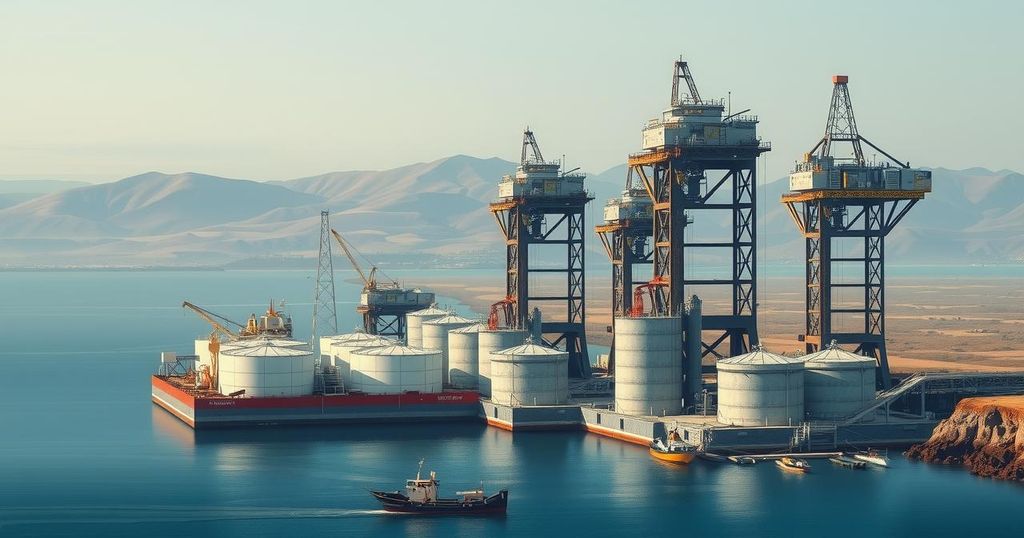Libya’s East Government May Declare Force Majeure on Oil Fields, Ports
Libya’s eastern government may declare force majeure on oil fields due to attacks on the NOC. They are considering relocating the oil corporation’s headquarters as tensions rise. Despite claims of unrest, the NOC insists it is operating normally while oil production recently reached 1.3 million barrels per day.
Libya’s eastern government is on the verge of announcing a force majeure on its oil fields and ports, citing persistent attacks against the National Oil Corporation (NOC). This announcement from the Benghazi-based government marks a significant moment in a country where the oil sector has faced ongoing instability.
Although this eastern-based administration lacks international recognition, most of Libya’s oil fields remain under the control of military leader Khalifa Haftar. In response to the security situation, there are discussions about moving the NOC’s headquarters from Tripoli to safer locations like Ras Lanuf or Brega, both cities under the eastern government’s jurisdiction.
Currently, the NOC operates in Tripoli, where it is managed by the internationally recognized Government of National Unity (GNU). Previous reports suggesting the NOC headquarters was stormed have been strongly denied, declared as “completely false” by the corporation. They insist operations are continuing without interruptions amidst these developments.
Hussain Safar, the acting head of the NOC, described the incident as a minor personal dispute in the reception area, quickly contained by security, with no repercussions for the corporation’s operations or staff. Furthermore, the GNU’s media office released footage showing calm conditions at the NOC’s headquarters.
The backdrop to this situation is Libya’s fragile oil sector, which has suffered repeated disruptions over the past decade since the 2011 uprising that led to the downfall of Muammar Gaddafi. August of this year saw a substantial loss in oil production, with an estimated 700,000 barrels per day lost due to political tensions. This disruption held up exports at various ports amidst a political standoff.
As production begins to stabilize, the NOC claimed that crude oil output recently reached 1.3 million barrels per day. However, the ongoing tensions and the potential declaration of force majeure pose new threats to the region’s already volatile oil sector.
In summary, Libya’s eastern government is poised to declare force majeure on its oil operations amid escalating attacks on the National Oil Corporation. The NOC maintains its operations are stable despite claims of a security breach. The backdrop is a decade-long instability affecting the country’s oil production, with ongoing conflicts and political rivalries threatening future output and stability in the region.
Original Source: www.newarab.com




Post Comment